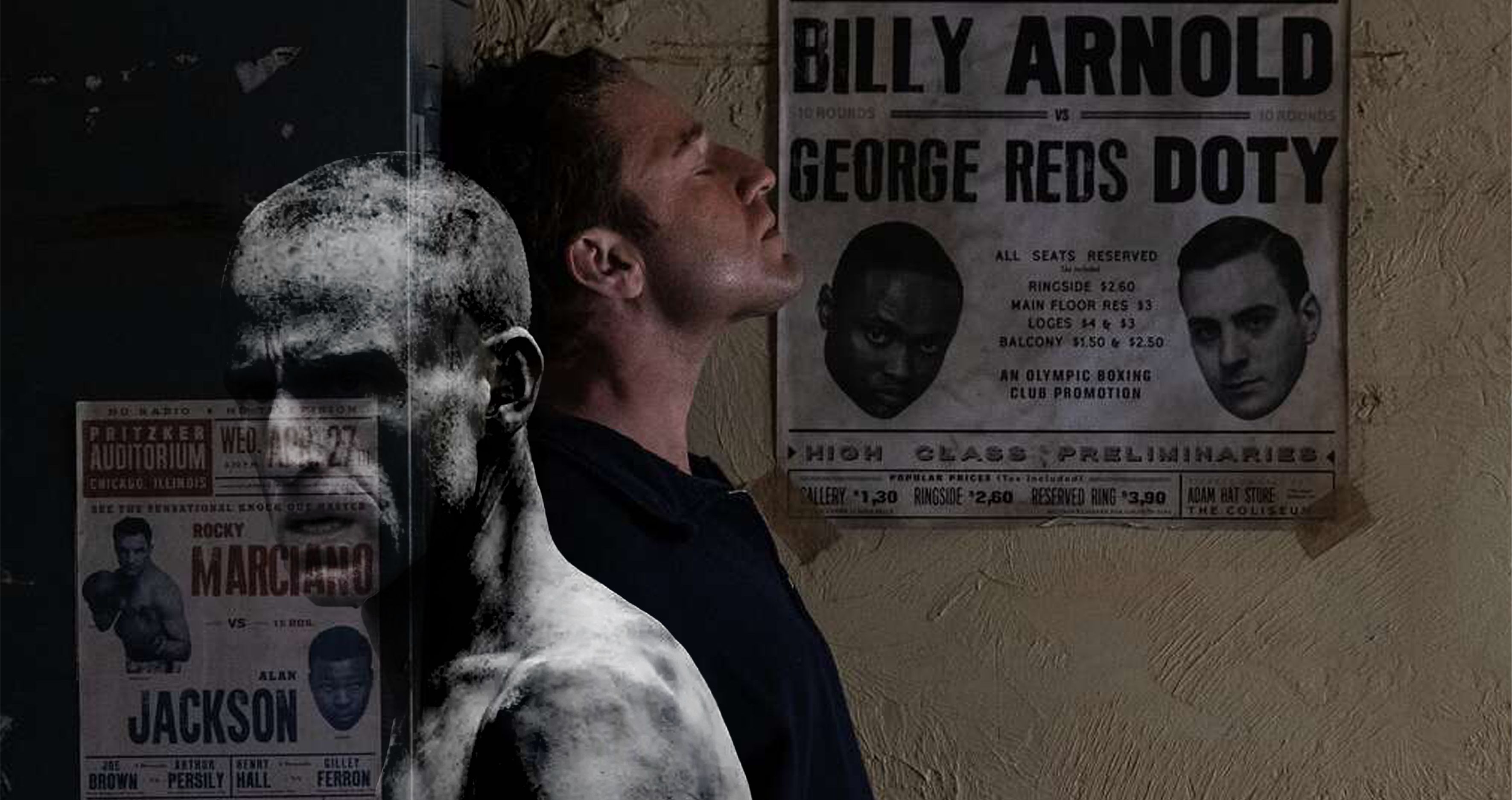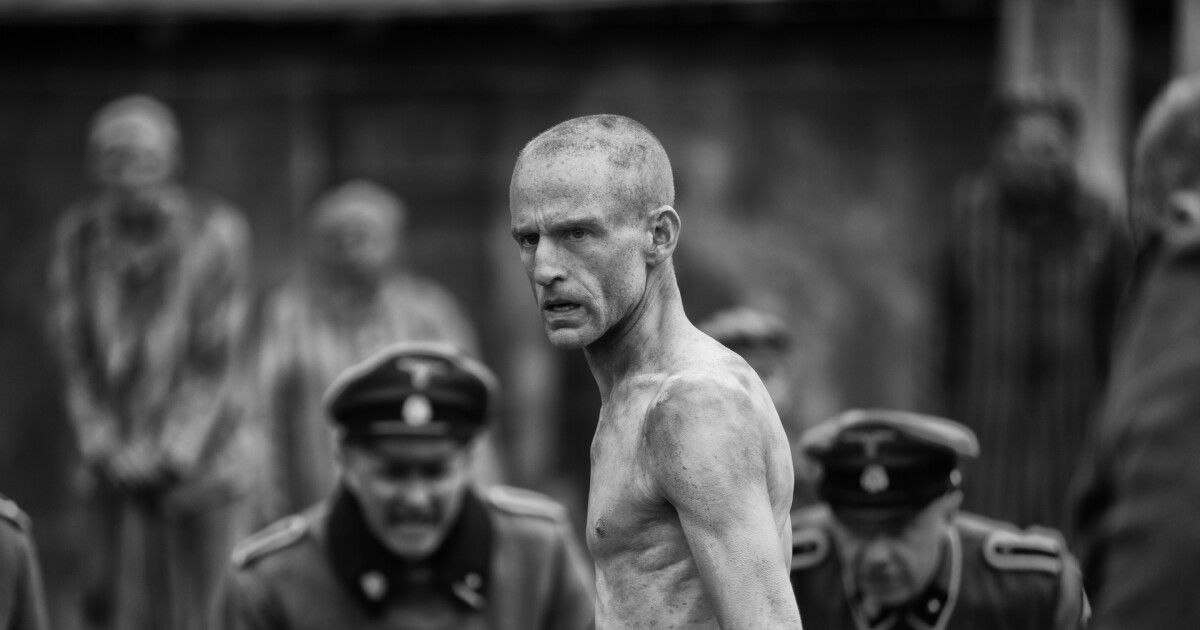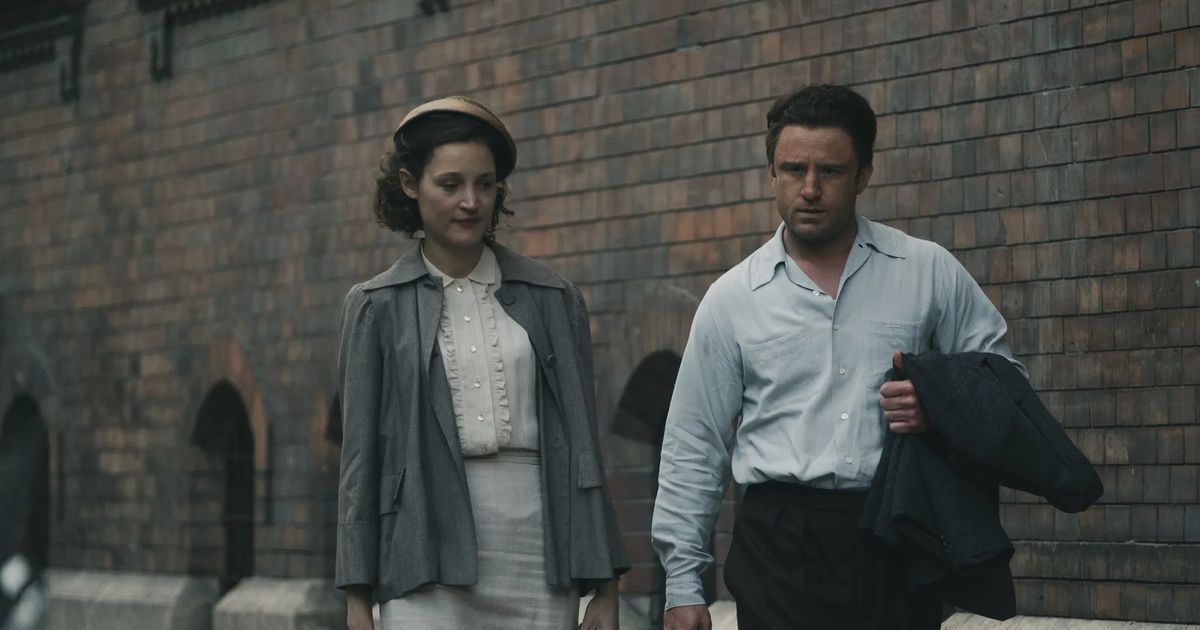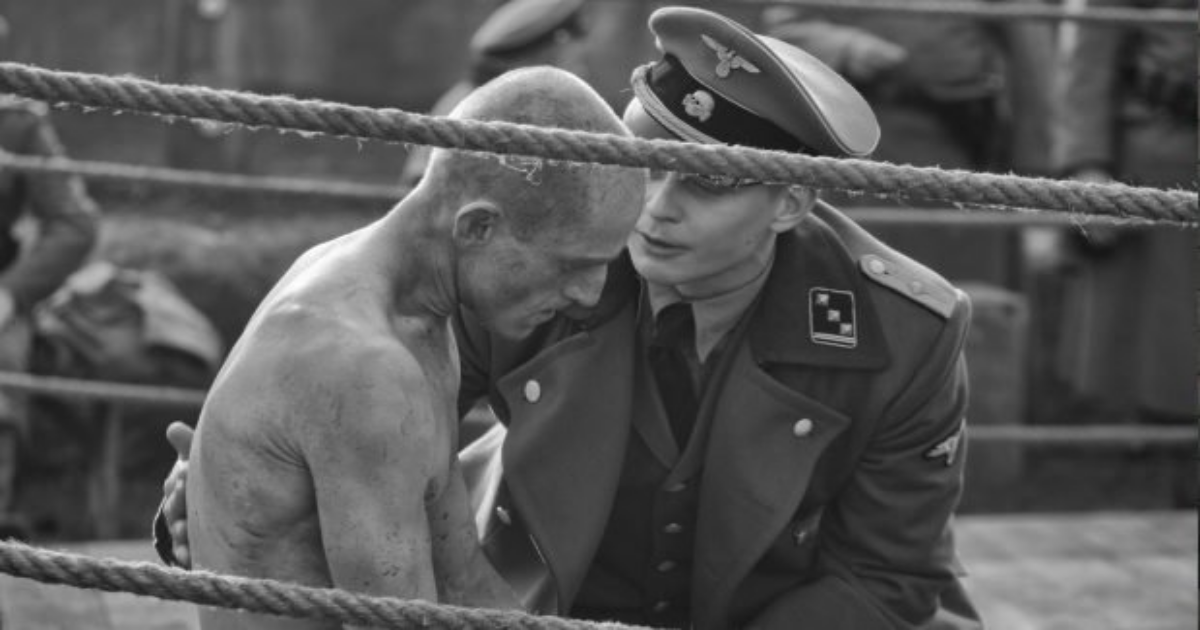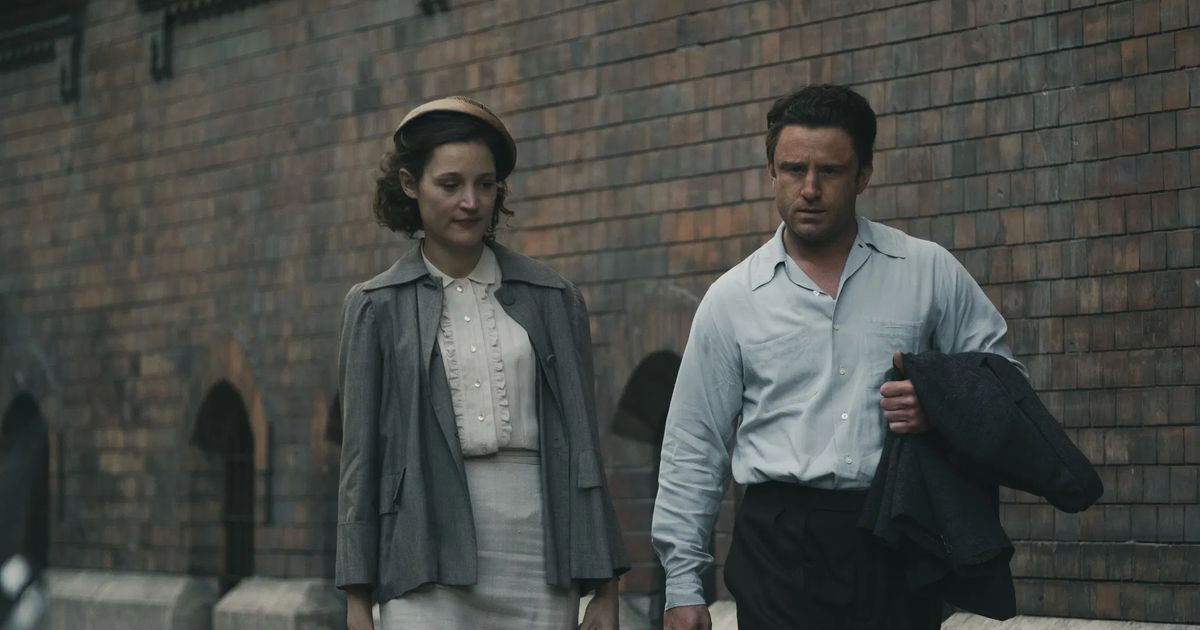At 10 a.m. in Israel, traffic stopped. People got out of their vehicles in the street and stood, air raid sirens sounded, and the entire country paused for two minutes, an eternity in modern times. They were remembering the six million Jews killed during World War 2, and the trauma it created for generations of people internationally; the night before, a film on HBO was doing the same. The Survivor was released the night of Yom HaShoah, which lasts until the following evening, April 28 this year, and is known colloquially as Holocaust Remembrance Day.
The film, streaming now on HBO Max, takes place in two timelines, one in the concentration camp of Auschwitz during the war, and the other years after, both following the life of Hertzko Haft, known by his American name, Harry. Based on his true story, the painful film follows the painful life of a man who survived the death camps, but at a cost he could barely afford.
The Boxer and the Nazis
Haft is a boxer on a losing streak, and one gets the impression that somewhere buried in his tormented psyche, he wants it that way. Subconsciously, maybe the bloody beatings he takes, his nose red like a strawberry pressed against a swollen face, are a masochistic form of punishment for his sins. Haft learned how to box at Auschwitz, after an entrepreneurial SS officer recruits him and trains him, hoping to stage fights for the bored Nazis and earn money from it.
Haft enters the ring, surrounded by a crowd of screaming Nazis holding money and beer bottles while cheering on their bets, and fights his fellow Jews. Two men enter the ring with the knowledge that the last man standing receives rations and some meager kickbacks; the other is usually shot in the head after being savagely beaten down in a fight to the ostensible death. As such, Haft survives the death camps, receives a bath, has some whiskey, sees a prostitute, and is generally treated like a loyal puppy to his SS coach, Schneider (a terrifying but mesmerizing Billy Magnussen).
Schneider has some cold, Nietzschean philosophies about power and struggle. He's right, to some extent, that the history of civilization is a history of genocide, slavery, and dominance, with each 'great' country existing as a result of conquering another. "It's inevitable," he says, quoting the German writer Goethe, "'You must either conquer and rule or serve and lose, suffer or triumph, be the anvil or the hammer.' Choosing to be the hammer, though, doesn't mean I enjoy striking the anvil."
Perhaps Haft thought that he could take on this philosophy, winning fights in order to get out alive. The trouble with Schneider's power dynamics, however, is the existence of a moral conscience. For those who have one, 'striking the anvil' isn't a one-time action; Haft remembers beating other Auschwitz prisoners to a pulp and collaborating (even if choosing not to resulted in death) with the Nazis. These memories haunt him, triggered by anything from fireworks to someone calling him an "animal," and he clearly has severe PTSD as a result. He may have been the last man standing in the rings of Auschwitz, but he didn't really win. "You can't win," one character says, "all you can do is survive."
At What Cost Survival
The Survivor thus follows Haft as he remembers the past and attempts to survive it. He tells his story to a newspaper reporter (the always excellent Peter Sarsgaard) who writes the article, "At What Cost Survival: Fighting For the Nazis," which essentially ruins his relationship with the Jewish community, who view him as a traitor to his people. Haft wanted to get his name out there, though, amassing publicity in order to ensure a big fight against Rocky Marciano, and also in the hopes that a woman he loved (but was taken to the camps) might find him in the papers and seek him out.
Ben Foster plays Haft close to perfection. The actor dropped 62 pounds in order to film the scenes in the camp, and then gained 50 of it back in a period of five weeks; "I wouldn’t recommend anybody do that. It’s not something I would encourage anyone to do," he tells Variety. Beyond the actor's physical transformations, Foster is great at balancing both sensitivity and rage in a self-loathing character whose soul has been disfigured by the world. His Polish-Jewish accent is a little thick (along with some other actors) and awkward, but Foster is actually Jewish, and Haft did actually speak in that cadence (along with a lisp that Foster disregarded for some reason), so it's hardly an issue.
The rest of the cast is great as well, with a tough John Leguizamo performance and a surprisingly heartwarming and endearing Danny DeVito one. Vicky Krieps is subtle and good as a woman who helps Haft search for his lost love before the two develop a redeeming relationship along the way. She brings the same quietness and mystery she brought to Phantom Thread, and is a nice balance to the smoldering Foster performance. All of it is perfectly accompanied by a melancholic, occasionally rumbling score from the great Hans Zimmer.
At 80 years old, director Barry Levinson has made the best film in over two decades, at least since Liberty Heights (which, ironically, starred Ben Foster in his first film role and was also largely about the Jewish experience). His great populist filmmaking of Rain Man, Good Morning Vietnam, and Wag the Dog becomes much more subdued in The Survivor, which is (for the most part) short on crowd-pleasing melodrama and heavy on thoughtful, quiet moments that nonetheless construct emotionally devastating scenes.
The Holocaust is Personal, and The Survivor is Haunted
One can almost feel just how personal the film is for Levinson, who is also Jewish. He recounts how, as a child, a relative he was largely unfamiliar with named Simka stayed with his family for two weeks. They slept across from Levinson in his bedroom and would mumble in the night before screaming in terror. “I woke up one night because he was thrashing about in bed," the director told Deadline, "he was speaking a language, and he was yelling out, and he’s tossing and turning, and then he fell back asleep. And night after night after night, the same thing would occur.” His mother later told him that Simka had survived the camps.
"Nobody wants to hear the truth about the camps," Haft tells the newspaper reporter. "They shouldn't have a choice," the man replies. Holocaust cinema is wide and varied, and accounts for some of the greatest masterpieces of cinema, but can also be an easy tool for emotional manipulating on the part of savvy filmmakers. When tragedy is used for art, the possibility of exploitation should always be taken into account — why is a film using these events particularly; how is it telling this painful tale; what kind of profit is being made, and to whom? Stephen Spielberg famously declined payment for his Oscar-winner Schindler's List, calling it "blood money."
The Survivor doesn't seem to resort to exploitation, being made by fellow Jews, appropriately released on Yom HaShoah, not dwelling on unnecessary suffering to manipulate emotions, and honoring the life of a man who survived and the lives of countless who didn't. Like Sophie's Choice before it, the film explores the dead-end of bad choices and the spiritual mutilation they can cause. It's certainly not the best film on the subject of the Holocaust, not by a long shot, but it is an excellent character study and a haunting meditation on what survival really means.
"Once you were out of that camp, you have survived," Levinson said in the same Variety interview, "but you haven’t totally survived." A part of us is always lost with trauma, and the rest of our lives is learning how to be content despite incompletion; a moment of silence for all parts lost. The Survivor aired on April 27 on HBO, and is available to stream right now on HBO Max.

